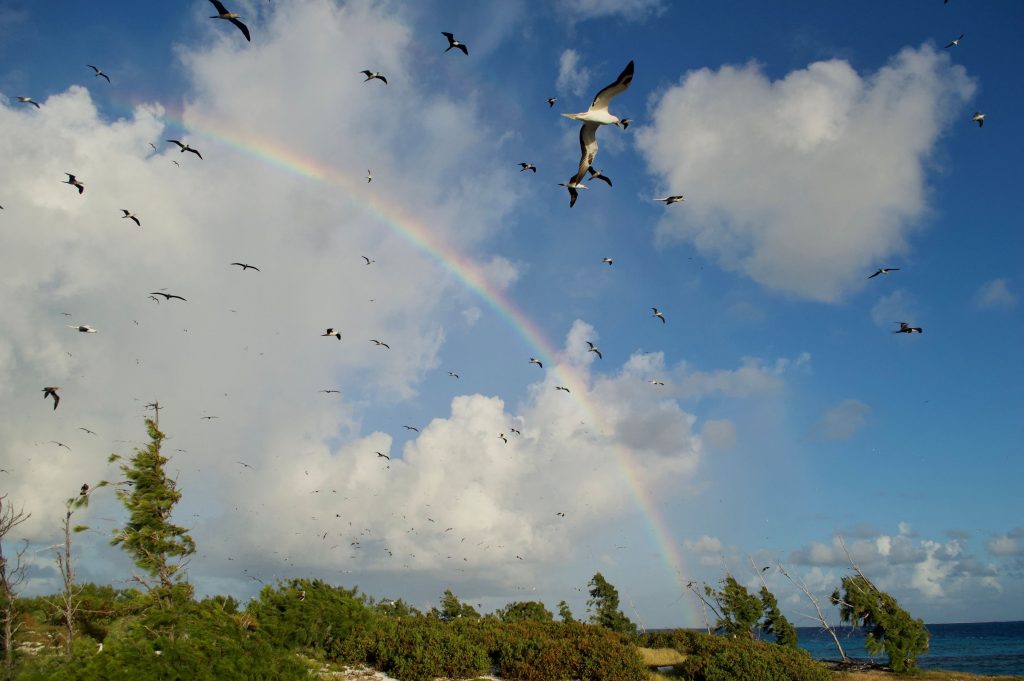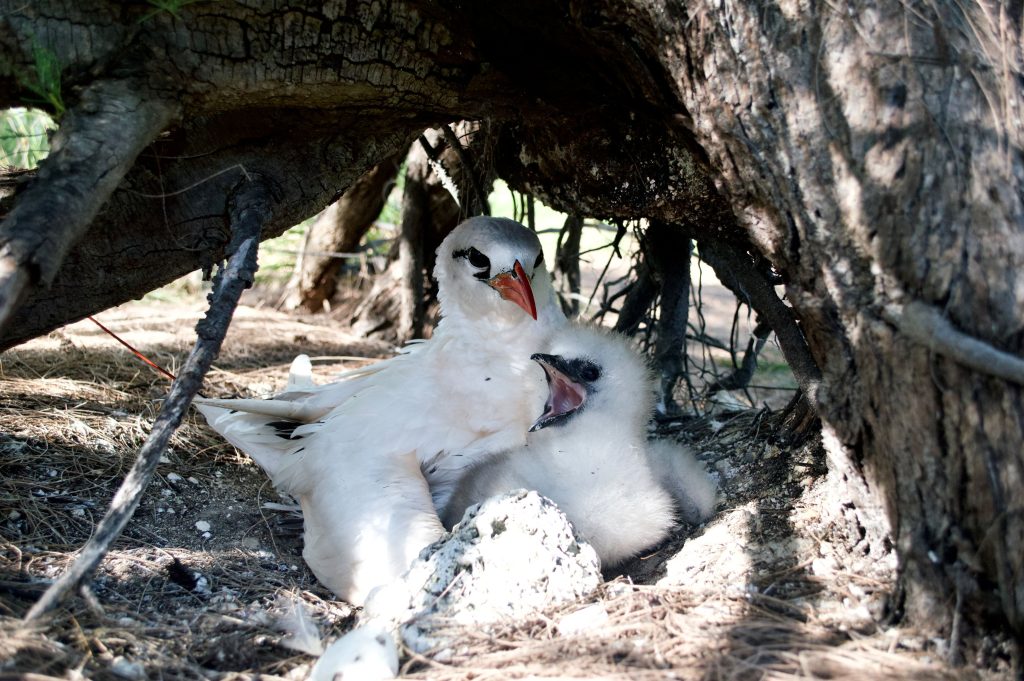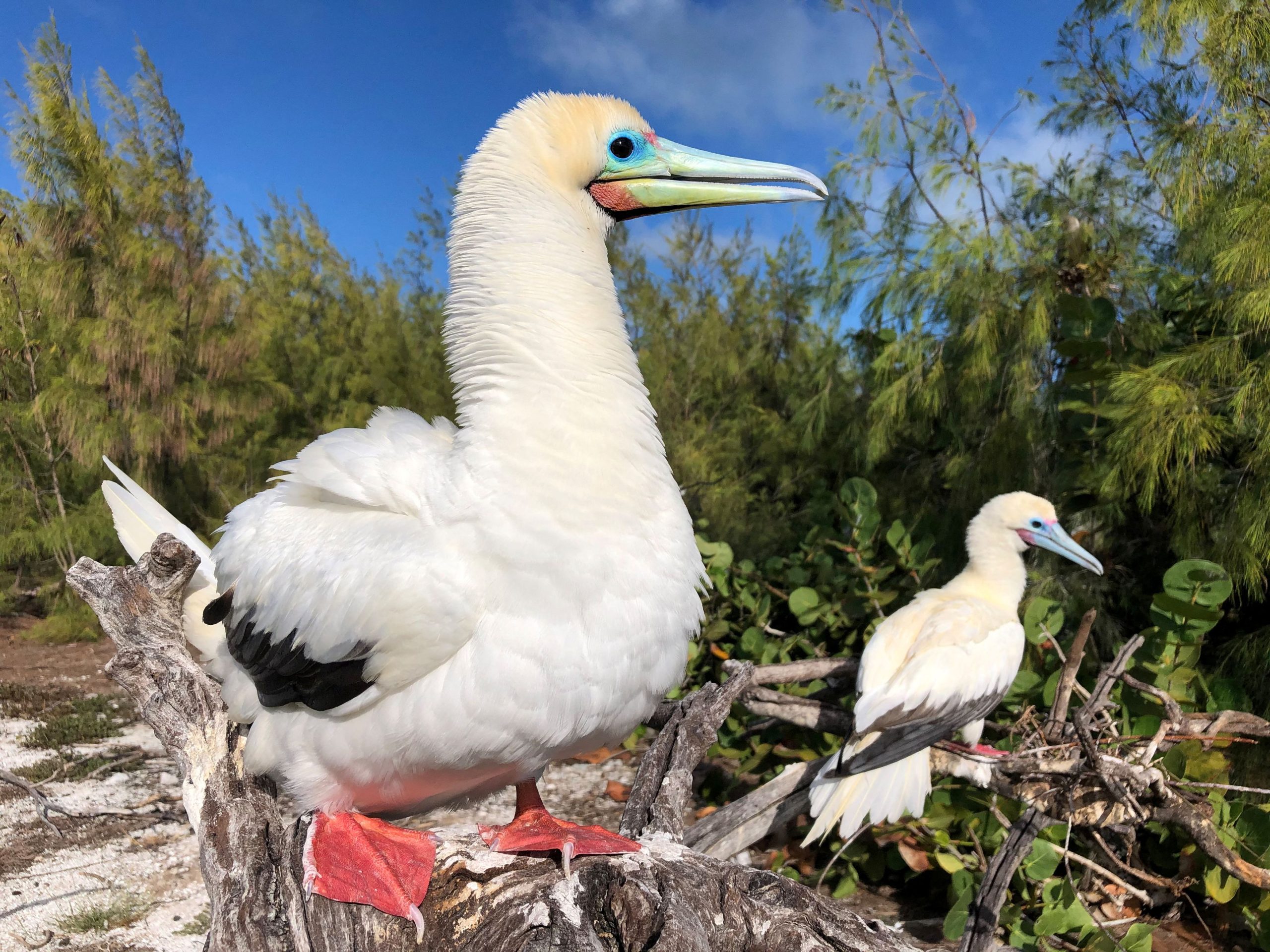A proposed initiative by SpaceX and the U.S. Air Force to test hypersonic rocket cargo deliveries on Johnston Atoll, a remote island in the Pacific Ocean, is drawing serious concern from biologists and conservationists who warn of potential harm to the fragile ecosystem.
Johnston Atoll National Wildlife Refuge, part of the Pacific Remote Islands Marine National Monument, serves as a critical sanctuary for numerous species. It is home to one of the world’s largest colonies of red-tailed tropicbirds, with nearly 13,000 nesting pairs recorded in 2021. The surrounding waters support over 300 fish species and a shallow coral reef system spanning approximately 32,000 acres. The atoll also provides vital nesting grounds for 14 seabird species, including red-footed boobies and great frigatebirds, which depend on the island’s isolation for breeding and survival.

Red-footed boobies and Great frigatebirds fill the sky after a brief shower that led to a rainbow over the eastern edge of Johnston Island, within the Johnston Atoll National Wildlife Refuge, in 2019. Ryan Rash/U.S. Fish and Wildlife Service/Handout via REUTERS THIS IMAGE HAS BEEN SUPPLIED BY A THIRD PARTY
Johnston Atoll has a complicated past—once used for nuclear testing and chemical weapons storage, it has undergone significant ecological restoration. Conservation groups warn that prioritizing technological innovation over environmental protection could reverse decades of progress and endanger species that now depend on the atoll for survival.
The military project would involve the construction of landing pads and ten rocket landings over a four-year period. While an environmental assessment is currently underway, experts caution that the associated noise, construction activity, and rocket landings could disrupt nesting behaviors, potentially threatening the survival of bird populations that have flourished after years of conservation work.
“This ecosystem has only recently begun to recover from its long history of military use and invasive species,” conservationists argue, emphasizing the importance of protecting the island’s restored biodiversity.

A Red-tailed tropicbird comforts its hungry young chick on Johnston Island, within the Johnston Atoll National Wildlife Refuge in 2019. Ryan Rash/U.S. Fish and Wildlife Service/Handout via REUTERS THIS IMAGE HAS BEEN SUPPLIED BY A THIRD PARTY
This is not the first time SpaceX has faced environmental scrutiny. A previous rocket launch at Boca Chica, Texas, reportedly destroyed the nests and eggs of plover shorebirds, resulting in legal challenges, according to Reuters.



